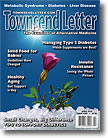Page 1, 2, 3
Séralini GM Corn Study Retracted
On November 28, 2013, Elsevier's Food and Chemical Toxicology retracted the 2012 article "Long term toxicity of a Roundup herbicide and a Roundup-tolerant genetically modified maize," by biochemist and molecular biologist Gilles Eric Séralini and his research team at the University of Caen (France). The retraction came after more than a year of "growing pressure" from GM and Monsanto proponents, as documented in Jonathan Matthews's article "Smelling a Corporate Rat" (December 11, 2012). A vicious campaign to discredit a GM study with negative results is not new, says Matthews. Matthews is founder and director of GMWatch. Monsanto's public relations army and allies that include GM scientists, the lobby group AgBioWorld, and sympathetic journalists have attacked and discredited other researchers who have reported problems with GM crops.
The GM proponents' primary criticisms were the small number of rats and the breed used in the Séralini study. The authors refuted these criticisms in a detailed response (See Townsend Letter Shorts, December 2013.) The breed, Sprague Dawley, is commonly used in toxicology studies; the same breed was used in a 2004 study that reported GM maize as safe. Significant abnormalities arose in some of the Séralini study treatment groups – even though only 10 rats were in each group. "Higher numbers of animals are only required in this type of safety [study] to avoid missing toxic effects (a 'false negative' result)," explains the European Network of Scientists for Social and Environmental Responsibility. Even with a small number of rats in each treatment group, toxic effects were significantly greater in these groups compared with untreated controls.
Rats that consumed GM maize and/or Roundup herbicide at half the minimal agricultural working dilution or less had more liver and kidney abnormalities than controls. They also developed more and larger tumors than controls. Unlike the 2004 study, which lasted only 13 weeks, the Séralini study lasted 2 years, the equivalent of a rat's average lifespan. The Séralini team pointed out, "The first large detectable tumors occurred at 4 and 7 months into the study in males and females respectively, underlining the inadequacy of the standard 90 day feeding trials for evaluating GM crop and food toxicity."
In an attempt to address critics, Séralini, as corresponding author, permitted A. Wallace Hayes, editor-in-chief of Food and Chemical Toxicology, access to the study's raw data. "Unequivocally, the Editor-in-Chief found no evidence of fraud or intentional misrepresentation of the data," according to the Elsevier press release, dated November 28, 2013. So why was the study retracted? Why was it erased from the journal's website? Not because the results were incorrect, according to the press release, but because they were inconclusive. Being inconclusive is not a legitimate reason to retract a journal article, according to Committee on Publication Ethics (COPE).
The European Network of Scientists for Social and Environmental Responsibility (ENSSER) has strongly criticized the decision to retract the 2012 study: "Uncertainty is inherent to science, as is the debate between conflicting explanations of findings. Openness of this debate and independent research to find the truth are crucial prerequisites for the survival of independent science." ENSSER is particularly disturbed that participants in the decision to retract the study have remained nameless: "In a case like this, where many of those who denounced the study have long-standing, well-documented links to the GM industry and, therefore, a clear interest in having the results of the study discredited, such lack of transparency about how this potential decision was reached is inexcusable, unscientific and unacceptable. It raises the suspicion that the retraction is a favour to the interested industry, notably Monsanto."
In early 2013, Food and Chemical Toxicology acquired a new associate editor for biotechnology – Richard E. Goodman, a Monsanto employee from 1997 to 2004, and active member of the International Life Sciences Institute (ILSI). ILSI is backed by GM and agrochemical companies. "Goodman had no documented connection to the journal until February 2013," Claire Robinson and Jonathan Latham, PhD, wrote in an article for Independent Science News. "His fast-tracked appointment, directly onto the upper editorial board raises urgent questions. Does Monsanto now effectively decide which papers on biotechnology are published in FCT? And is this part of an attempt by Monsanto and the life science industry to seize control of science?"
Editor Hayes denied that Goodman or Monsanto had any role in retracting the study. He said in a December 10, 2013, press release that the decision was his alone. That decision satisfied GM proponents. It did nothing to further scientific understanding. By officially deleting the study from medical literature, other researchers are discouraged from replicating or further investigating long-term effects of this GM crop and Roundup herbicide.
As in Galileo's time, science succumbs – at least temporarily – to whoever yells loudest.
European Network of Scientists for Social and Environmental Responsibility. Journal's retraction of rat feeding paper is a travesty of science and looks like a bow to industry [press release]. November 29, 2013. Available at www.ensser.org. Accessed December 27, 2013.
(Link to article: http://www.ensser.org/democratising-science-decision-making/ensser-comments-on-the-retraction-of-the-seralini-et-al-2012-study/)
Hayes AW. Elsevier announces article retraction from journal Food and Chemical Toxicology [press release]. November 28, 2013. Available at www.elsevier.com/about/press-releases/research-and-journals/elsevier-announces-article-retraction-from-journal-food-and-chemical-toxicology. Accessed December 31, 2013.
Hayes AW. Food & Chemical Toxicology Editor-in-Chief, A. Wallace Hayes publishes Response to Letters to the Editor [press release]. December 10, 2013. Available at www.elsevier.com. Accessed February 5, 2014.
(Link to article: http://www.elsevier.com/about/press-releases/research-and-journals/food-and-chemical-toxicology-editor-in-chief,-a.-wallace-hayes,-publishes-response-to-letters-to-the-editors)
Matthews J. Smelling a corporate rat [online article]. Spinwatch. December 11, 2012. www.spinwatch.org/index.php/issues/item/164-smelling-a-corporate-rat. Accessed December 27, 2013.
Robinson C, Latham J. The Goodman affair: Monsanto targets the heart of science [online article]. May 20, 2013. Independent Science News. Available at www.independentsciencenews.org. Accessed December 27, 2013.
(Link to article: http://www.independentsciencenews.org/science-media/the-goodman-affair-monsanto-targets-the-heart-of-science/)
Séralini GE, Clair E, Mesnage R et al. Long term toxicity of a Roundup herbicide and a Roundup-tolerant genetically modified maize. Food Chem Toxicol. 2012;50:4221-4231. Available at www.gmoseralini.org. Accessed February 6, 2014.
(Link to article: http://www.gmoseralini.org/wp-content/uploads/2012/11/GES-final-study-19.9.121.pdf)
Jule Klotter
jule@townsendletter.com
Page 1, 2, 3 |
![]()
![]()
![]()




